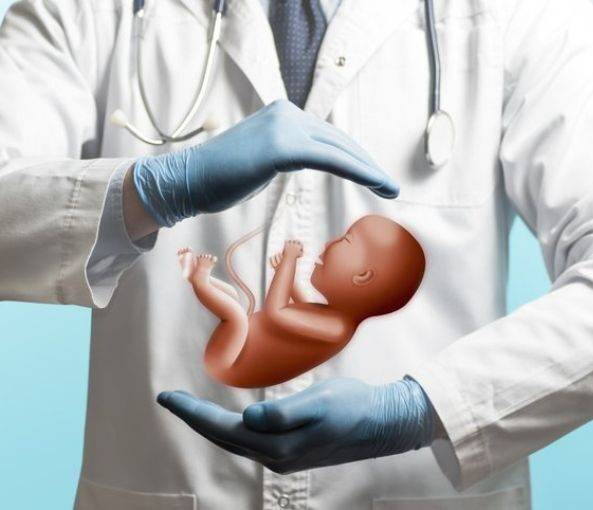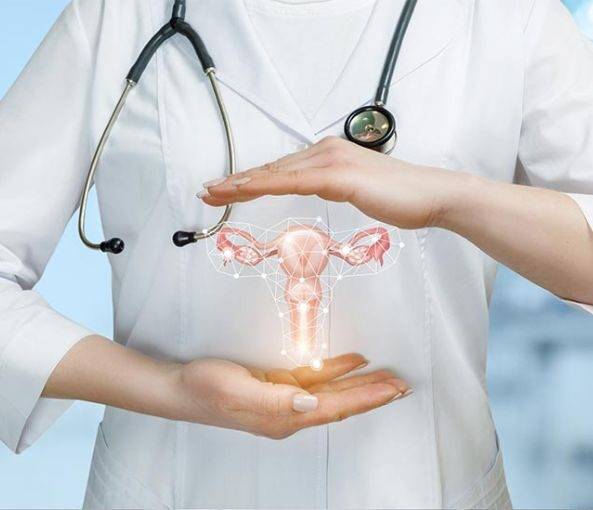
GYNECOLOGY
ISSUES
ONE STOP Shop FOR ALL YOUR
• Consultation
• Outpatient / inpatient
• Diagnostics
• Patient logistics
Our specialty
Our Key Services

Online & in Clinic Consultation
Teleconsults with the specialists
Doctor patient match
In house consults with our experts

Diagnostic Tests
Screening Tests.
Assessment of Fertility
Blood Tests
Radiology Tests

Lifestyle Management
Nutrition and wellness
weight management
personal wellness coach

Surgery
Daycare Procedures
Delivery
All Gynecological Operations

Micro Financing
We Offer Financing Options To Our Patients
Affordable EMI
Instant Approvals

Outstation medical travel
Patient logistics
Boarding and lodging
Doctor patient match
Insurance co ordination.
Why Choose us
We have a panel of highly reputed and experienced Doctors including General Physicians, Gynecologists, Skin Specialists ,Psychologists, Nutritionists, Paramedical Staff and Physiotherapists partnering with us to provide state of the art healthcare services in a hybrid mode.
With use of technology we aim to democratize women health, bring automation & develop Clinical protocols, evidence based care Solutions which empowers our patients and clinicians with best insights & decision making capabilities.
Chose Best of 3 IVF/Surgery Quotations
Lowest Treatment Cost
Wide Network of IVF Centers and Gynecology Clinics/Hospitals
Instant Financing option
Complete Patient Logistics/Stay Facilitation

Testimonials
What Our Patients Say About Us
All requirements are met in this clinic with v good care.
Annuradha Mohan
Happy PatientsDoctors are good and attend every call at any time. Service is gud. All are nice.
Bhavana Bali
Happy PatientsFrequently Asked questions for IVF
Egg retrieval is a fairly rapid procedure. Obviously the length of the procedure depends on how many follicles are present. Also the accessibility of the ovaries will determine how long the procedure will take. Accessibility means how easy is it to reach the ovaries with the ultrasound probe, whether they have a tendency to move away from the probe and so on. The typical egg retrieval will take from 20-30 minutes.
We do our egg retrievals under anesthesia so the patient is asleep for the procedure. Our anesthesiologists use medications which heavily sedate the patient so she is “asleep” however, she is not anesthetized so that breathing tubes are not necessary. The beauty of this approach is that the patient feels absolutely nothing, remembers absolutely nothing, and has few if any of the typical side effects of anesthesia such as nausea and vomiting.
The data we have available tells us that it does not. There have been many women who have undergone multiple egg retrievals. The fact that they have responded to stimulation on subsequent occasions and gotten eggs and pregnancies on these occasions implies that the ovaries are OK after egg retrieval. There have been some limited studies looking at the appearance of the ovaries in women who have had egg retrievals and subsequent laparoscopic surgery. In those patients, the findings were normal. Of course we simply have no data as to long term outcomes because IVF and egg retrievals have only been done since 1978, however our opinion, and that of the medical community, is that egg retrieval is a safe procedure where the benefits outweigh the risks.
Vaginal bleeding is not uncommon after an egg retrieval. Usually this bleeding is from the needle puncture sites in the vaginal wall. It is usually minor (spotting).
Not necessarily. Although we will usually get an egg from most mature sized follicles, most women will have a mixed group of follicles after ovulation induction. Some of those follicles will have immature eggs or post mature eggs which may not be identifiable so they will seem to have been “empty” follicles.
The embryo transfer does not require any anesthesia. It is performed using a speculum that allows the doctor to see the cervix, (like a Pap smear) and is very similar in technique to an intrauterine insemination (IUI). Usually the woman feels only the speculum and nothing else.
It is really not necessary from the conception point of view. In nature, the embryo floats freely in the endometrial cavity for a number of days before implantation and it will do the same in an IVF cycle. We do recommend that our patients take it easy following transfer, but routine work activities are certainly reasonable. If there is an increased risk of Ovarian Hyperstimulation, we will recommend prophylactic bed rest.
When the above criteria are followed, approximately 25-30% of pregnancies are multiple. The vast majority of these are twin pregnancies. The rate of triplets is approximately 5% and that of quadruplets is much less than 1% when the above criteria are followed. These odds are related to the number of transferred embryos.
Ultimately the answer is no. If an embryo is of poor quality because it is genetically abnormal, there is nothing that can be done to salvage it. However, there are procedures which we do that can improve the chances of a borderline embryo. These include carrying aspiration of fragments as well as assisted hatching. It has been shown that procedures such as these can increase implantation rates in couples with a poor prognosis.
Since we only do day 5 (or blastocyst) transfers we perform assisted hatching routinely in most cases. Assisted hatching is also performed routinely in PGS and PGD cases.
Embryos which progress to the blastocyst stage and are good quality can then be cryopreserved, if that is the couple’s wishes. If couples do not elect to freeze the extra embryos for later use, they can donate their embryos for research, for stem cells research, to another couple, to an embryo adoption agency, or simply discard them.
Frequently asked questions for Gynecologist
There are many birth control methods such as pills, condoms, IUDs, and implants, but these methods may not be suitable for everyone. Also, these methods can lead to excessive bleeding, weight gain, and more. So don’t forget to ask your gynecologist about the contraceptive method that works best for you.
Irregularities in the menstrual cycle are common, but these fluctuations can lead to serious problems such as menorrhagia, hormonal problems, fibroids, and more. It can also be a warning sign of an unhealthy condition.Everyone is different, so it’s important to talk to your OB/GYN to find an effective solution to your problem.
Such conditions include infections, lack of lubrication, endometriosis, and thinning of the vaginal walls. If you experience pain during sex, ask your OB/GYN about the cause and subsequent treatment.
Clear or milky vaginal discharge is normal and helps rid the body of dead cells. It could be a sign of vaginitis.If you notice any of the above changes, or if you feel itching or burning, see your gynecologist.
Because women go through many changes from puberty to menopause, it’s important to have specific tests at each stage of life. Talk to your obstetrician and gynecologist to understand your body’s intricacies and stay healthy for life. Asking the right questions can open the door to a healthy life. But be prepared by researching and writing down questions before your gynecological appointment. Then visit the best gynecological clinic where a competent and experienced gynecologist will patiently answer all your questions and suggest the most appropriate treatment.
Our Network Partners












